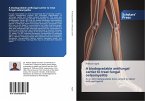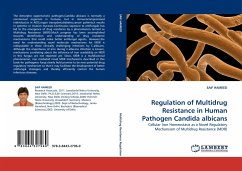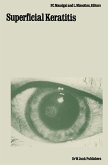Microbial keratitis is a serious ocular infection. It is often difficult to establish a microbial keratitis that is due to fungal infection. Inadequate therapy and delayed diagnosis of fungal keratitis leads to generally poor visual outcomes. The objective of this study is to determine the sensitivity and specificity of PCR to detect fungal pathogen in microbial keratitis. In this study, a PCR method was compared to the conventional method to detect fungal pathogen in microbial keratitis. The PCR was performed with primers pair F1,R2 and F3,R4 from two consecutive regions in the 18S rRNA gene. Positive result for PCR was considered when there was presence of this amplified target sequence in both primer pairs F1,R2 and F3,R4. A statistical diagnostic test revealed that the PCR has a sensitivity of 90.9% and a specificity of 94.7% to detect fungal pathogen in microbial keratitis. PCR is a rapid, sensitive and a useful method to detect fungal pathogen in microbial keratitis.
Bitte wählen Sie Ihr Anliegen aus.
Rechnungen
Retourenschein anfordern
Bestellstatus
Storno








